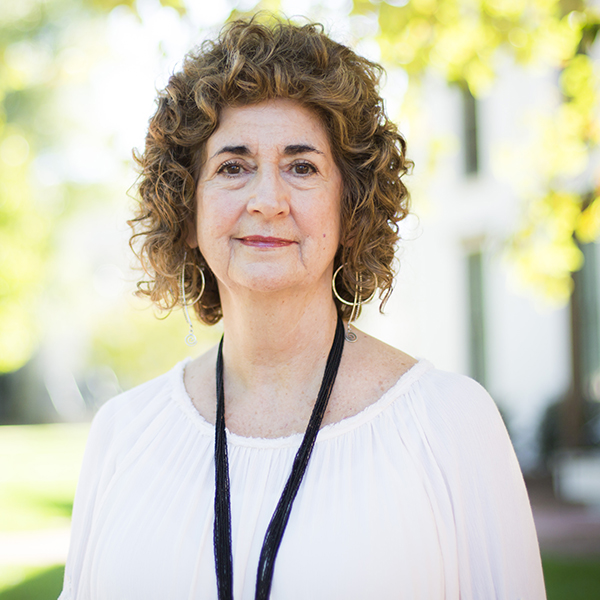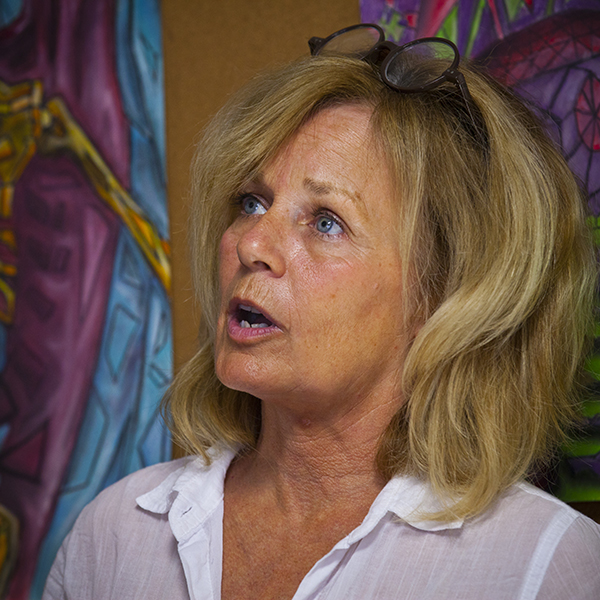Retired faculty represent Oxford's academic excellence

Two Oxford faculty members retired at the end of the 2019–20 academic year. While the current pandemic prevented the Oxford community from honoring their retirement in person in the spring, their contributions to Oxford’s academic excellence are celebrated.

Patricia Owen-Smith
Professor of Psychology and Women's, Gender and Sexuality Studies
When students recall their time in Patti Owen-Smith’s classroom, at the forefront of their memory will likely be her “singing bowl" used to intentionally begin each class session with moments of sitting practice, mindful breathing, and quiet reflection.
This mindfulness practice directly aligns with her research interest in contemplative practices in higher education. Her genuine caring and interest in her students’ learning and “a-ha” moments moved her to begin research on epiphanies in learning which then led to her interest in the scholarship of teaching and learning (SoTL) and what she has described as “a deep and abiding commitment to and curiosity about affective development in college students and the ways in which it deepens cognitive development.”
Owen-Smith established both Oxford’s Women’s Studies program and the Theory-Practice Service Learning (TPSL) program, for which she served as faculty director until her retirement. She is the recipient of the 1996 Research of the Year Award from the Georgia Psychological Association, and numerous teaching awards from Emory University including the 2000 Emory Williams Distinguished Teaching Award (the university’s highest award for excellence in teaching) Phi Theta Kappa Award, Mizel Award for Excellence in Teaching, Fleming Faculty Award for Excellence in Teaching, and the Faculty Appreciation Award for Innovative Teaching. In 2001, Owen-Smith was named a Carnegie Scholar by the Carnegie Foundation's Academy for the Scholarship of Teaching and Learning.
She holds a bachelor of arts degree in English and a master’s degree in psychology, both from the University of Georgia, and a doctorate in developmental psychology from Georgia State University.
She joined the Oxford faculty in 1986. Before coming to the college, she directed a large domestic violence program in Atlanta while also maintaining a private practice in child, adolescent, and family therapy. She has served as a board member for several non-profit organizations in and around Atlanta and given her time as a volunteer to organizations assisting women and children in grief and crisis.
Owen-Smith has been invited by numerous institutions and organizations across the globe to give lectures, workshops, and presentations. Her published works include The Contemplative Mind in the Scholarship of Teaching and Learning, Constructing a Social Justice Pedagogy through Contemplative Service Learning,Reclaiming Interiority as Place, and Knitting Through the Hallelujah. She participated consistently from 2006 until her retirement as a faculty member partnered in research with a student in the Oxford Research Scholars program.
Her career in higher education has deeply influenced the lives of her colleagues, students, and a generation of local Newton County-area children and their families through the community-engaged learning initiative she created and championed.
“A. A. Milne in his beloved book, ‘Winnie the Pooh,’ observes: “How lucky I am to have something that makes saying goodbye so hard.” Indeed! How very fortunate that I found the work that I was supposed to do in an environment that allowed me to soar. How privileged I was to be among Oxford College’s tender-hearted students navigating one of the most significant transitions of their lives, an energetic, smart, and deeply committed faculty, and a staff par excellence. My retirement brings sadness and even a little fear, and perhaps the pandemic has exacerbated some of this to some extent. Yet, the pandemic in many ways has afforded the pause necessary to grieve but also celebrate the kismet of landing at Oxford College. I take its heart and soul with me, but I shall miss its hallowed ground forever.”
— Patti Owen-Smith

Camille Cottrell
Associate Professor of Art History and Studio Art
From 2002 until her retirement, Cottrell served as acting chair of the Studio Arts and Art History Department while curating and mounting 63 exhibitions on campus. She shared her passion for the arts with the local community coordinating 36 seminars and critiques in the tri-county area for educators, students, patrons, and artists—including professional development seminars for middle and high school art teachers, collaborative projects between Oxford College, the Newton County Arts Association, and the Georgia Department of Education.
Cottrell served on several academic and administrative committees and was actively involved in the college’s 2013 renovation of the former Oxford City Hall building—having historical significance as the fire and police station, community center, and city administration building—into what is now the Whatcoat Street building housing Oxford College mail services and art studio space. When Oxford renovated and reopened Pierce Hall in February 2018, Cottrell played an integral role in gathering student artwork for display throughout the building and providing input into the setup of two art studio classrooms.
She holds a bachelor of fine arts in printmaking and a master’s degree in printmaking and art history from the University of South Carolina. She has a doctorate in art history and studio arts from the University of Georgia.
Cottrell served as a faculty member at Oxford for 18 years. Previously, she taught at the University of Georgia, Oglethorpe University, Vermont College, and the Art Institute of Atlanta. Her research presents a new knowledge of the circumstances where North America came to the forefront in the international arena of art, criticism and art educational practices between 1930 and 1950, and examines the interaction between European and American artists, the development of a modern aesthetic philosophy unique to this country, and the introduction of avant-garde practices into the educational systems of universities and schools.
Among her honors and awards, she received the 2016 Emory Williams Distinguished Teaching Award (the university’s highest award for excellence in teaching), a Center for the Arts and Creativity Grant from Emory University, the Rackley Grant for Professional Development from Oxford College, and was selected as a Pierce Visiting Scholar with the University of Oxford in England.